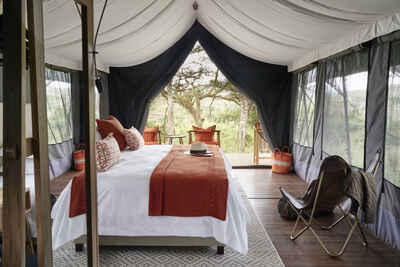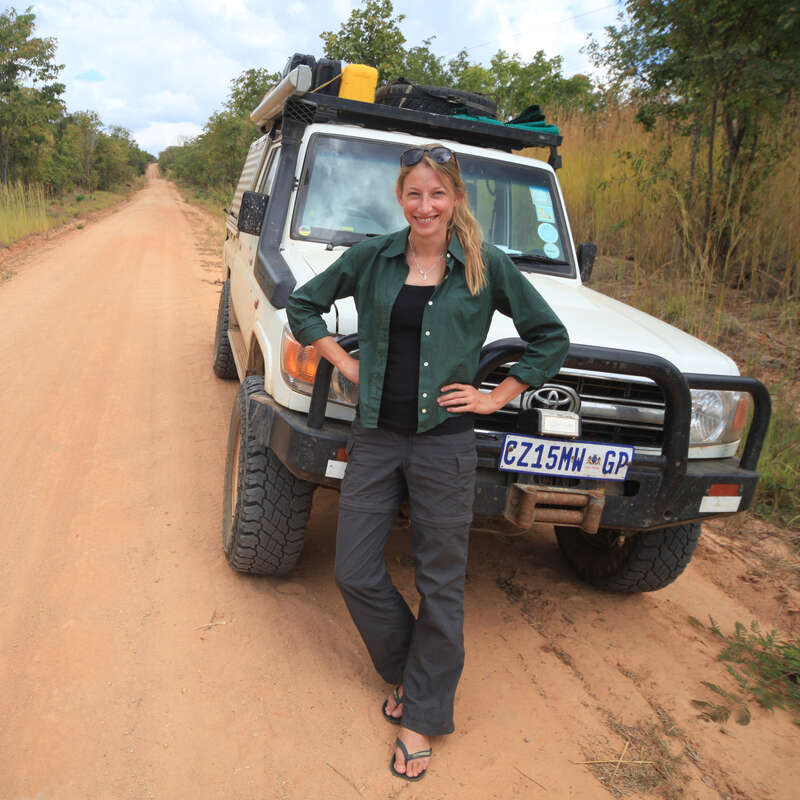About Sanctuary Ngorongoro Crater Camp
Sanctuary Ngorongoro falls into a large portfolio of Sanctuary Retreats, which includes camps and lodges across Africa.
While the choice of colour for the tents can seem rather dark under the forest canopy, we feel the camp offers an excellent location to fully experience the iconic Ngorongoro cloud forests. The camp is small and intimate offering an under-canvas experience, with the main advantage of the camp’s close proximity to the access road onto the crater floor, allowing guests to enjoy the crater floor before the crowds arrive.
Our view
While the choice of colour for the tents can seem rather dark under the forest canopy, we feel the camp offers an excellent location to fully experience the iconic Ngorongoro cloud forests. The camp is small and intimate offering an under-canvas experience, with the main advantage of the camp’s close proximity to the access road onto the crater floor, allowing guests to enjoy the crater floor before the crowds arrive.
Accommodation
10 Tents
Children
This camp is best suited for children of 8 years and above
Open
Closed April and May
Activities

4WD Safari

Birdwatching

Private activities
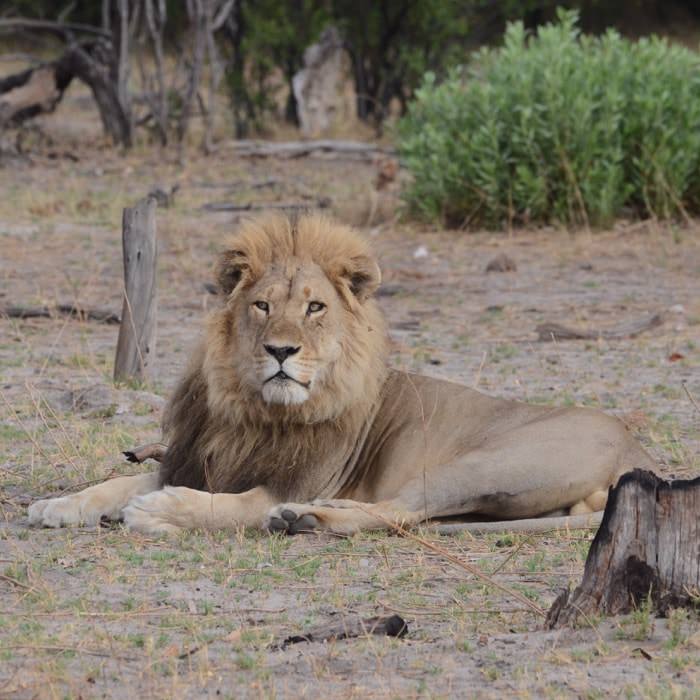
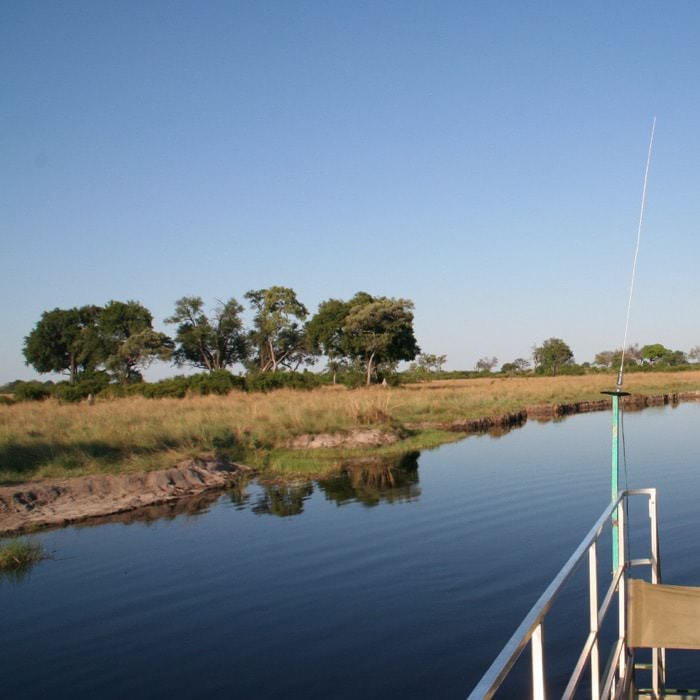
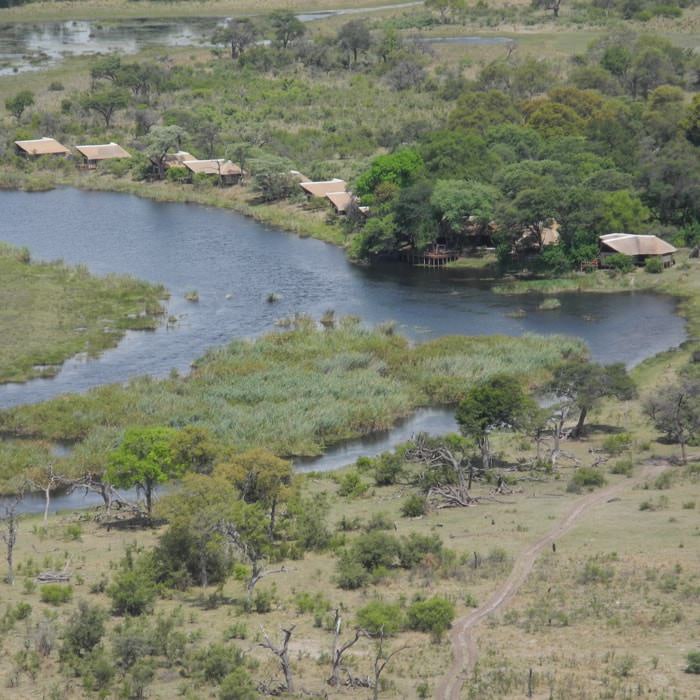
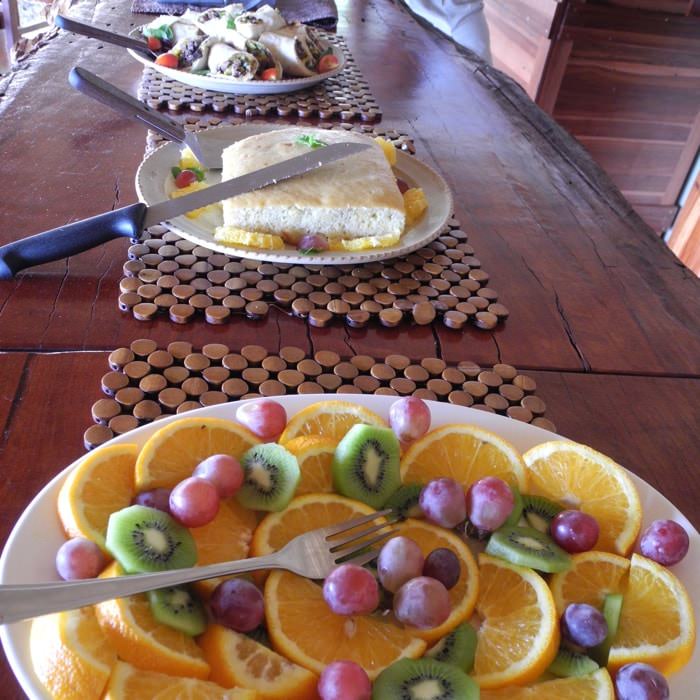
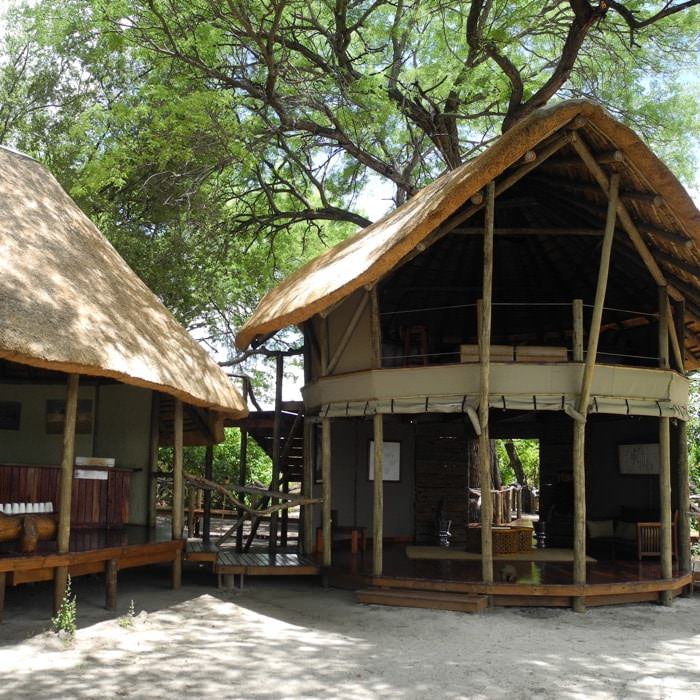
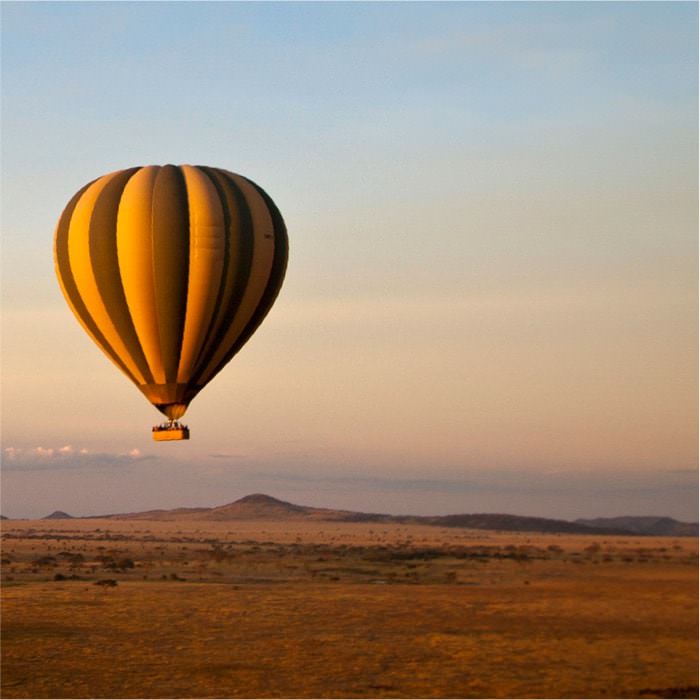
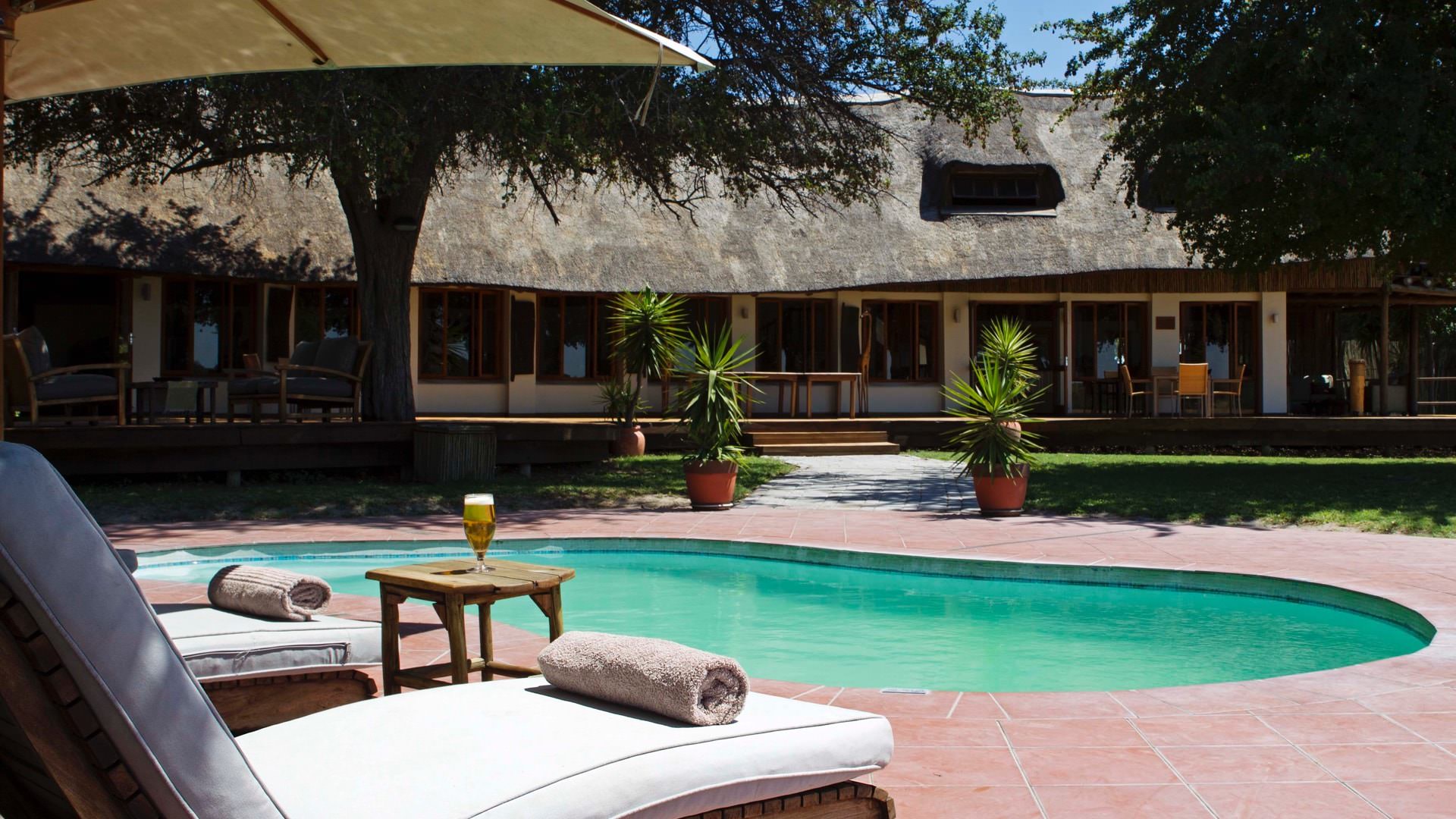
Expert Africa's gallery
When we travel we take lots of photos ourselves to give you a real and un-edited view of the safaris. See our 1 pictures of Sanctuary Ngorongoro Crater Camp to get the candid view.
View gallerySanctuary Ngorongoro Crater Camp: Our full report
Sanctuary Ngorongoro falls into a large portfolio of Sanctuary Retreats, which includes camps and lodges across Africa.
As one of the of the few camps located on the eastern rim of the Ngorongoro Crater, the quick access to the decent road onto the crater floor makes this camp a great choice for this iconic destination.
A choice of grey and dark green canvas allows the camp to successfully blend in with its natural surroundings, under the large canopies of the flat top acacias. Each tent enjoys a forests view, with some looking into the crater
The main area consists of a comfortable lounge, with an assortment of sofas and coffee tables, as well as wildlife photographs printed onto large canvas. A small bar is located at the back of the lounge with a selection of house and premium drinks. On the same wooden platform, directly adjacent, a spacious dining tent with individual tables set up for private meals. In front of the main area, the wooden deck stretches forward to offer an additional seating area and a large fire pit for evening drinks.
The rooms are modest tents on raised platforms, tucked into the forest. Each tent has a small deck with a chair and also a small shaving basin and mirror. The interior décor offers a pop of colour with burnt orange bed spreads and throw pillows with a patterned beige and grey woven carpet.
The nights on the crater rim can be rather chilly, therefore each room is provided a small gas heater which is lit by the camp staff in the evenings, along with hot water bottles.
The back of the tent has an ensuite bathroom, divided by a linen curtain partition. A enclosed canvas shower is centrally situated, with a vanity basin on one side and an enclosed toilet on the other side. Amenities such as bathrobes and slippers are provided, as well as a safe for storing valuables. Every tent is provided a small gym bag containing a yoga mat.
Geographics
- Location
- Ngorongoro Crater, Tanzania
- Ideal length of stay
- 2 nights
- Directions
- A 1.5 drive to Lake Manyara Airstrip
- Accessible by
- Fly-and-Transfer
Food & drink
- Usual board basis
- Full Board
- Food quality
- Meals are usually buffet style, plated or prepared as individual family platters.
- Dining style
- Individual Tables
- Dining locations
- Indoor Dining
- Further dining info, including room service
- Room service is available on request
- Drinks included
- Most house drinks are included. Premium sprirts and champagne are extra. Drinking water is provided throughout the camp
Children
- Attitude towards children
- Children ages 6 and older are welcome
- Property’s age restrictions
- 6 years and above
- Special activities & services
- There are no special activities for children.
- Equipment
- There is no special equipment for children.
- Generally recommended for children
- While the camp does have a slighty more intimate and adult atmosphere, we feel families would find this camp suitable to them. Due to the nature of the forest, parents should keep their children with them at all times
- Notes
- Parents should keep their children under constant supervision at all times.
Communications
- Power supply notes
- The camp relies on both solar and generator to power their inverters and the use of charging devices and hair dryers are permitted
- Communications
- Radios are provided in the rooms and there is wifi in both the main areas and the room.
- TV & radio
- None
- Water supply
- Transported in
- Water supply notes
- All the tents have plumed in showers and flush loos. Hot water is provided by a hot water boilers.
Health & safety
- Medical care
- Closest medical facility is Fame Hospital in Karatu
- Dangerous animals
- High Risk
- Security measures
- Askaris available to escort guests during the night.
- Fire safety
- Fire extinguishers provided in the main area and the rooms. Each room is fitted with a carbon monoxide alarm.
Activities
4WD Safari
Birdwatching
Private activities
Extras
- Disabled access
- Not Possible
- Laundry facilities
- Laundry is included. Powdered soap is provided for ladies’ underwear
- Money
- Cash is accepted in all currencies. Currency exchange is possible, using the rate of the day.
- Accepted payment on location
- The camp can accept credit cards; Mastercard (2.5%), Visa (2.5%) and Amex (3%)
Plan and book your trip with Expert Africa
All of our trips are tailor-made, so we'll always adapt them to suit you. Talk to an Expert and let us plan and arrange your perfect trip.

Talk to an Expert
Call or email us now! We’ll match you with the Specialist in our team who is best suited to help you. Then together we can start planning your trip.

Set up your itinerary
Based on our experience and your ideas, your specialist will create a detailed, costed itinerary. We’ll refine it together, until we have a trip that you’re perfectly happy with.

Prepare for your trip
The same Specialist will make the seamless arrangements for your trip, send you detailed travel documents, and be available to answer any questions before you depart.

Travel with peace of mind
After you set off, you’ll be cared for by our partners in Africa, most of whom have worked with Expert Africa for decades. And if you ever need us urgently, we’re available 24/7.

When you return
We love to learn about your trip, and so will always be grateful if you’ve the time to give feedback to your Specialist when you return.
Sanctuary Ngorongoro Crater Camp's location
Look closer at the environment and surroundings of Sanctuary Ngorongoro Crater Camp.
Other lodges in Ngorongoro Crater
Alternative places to stay in this same area.
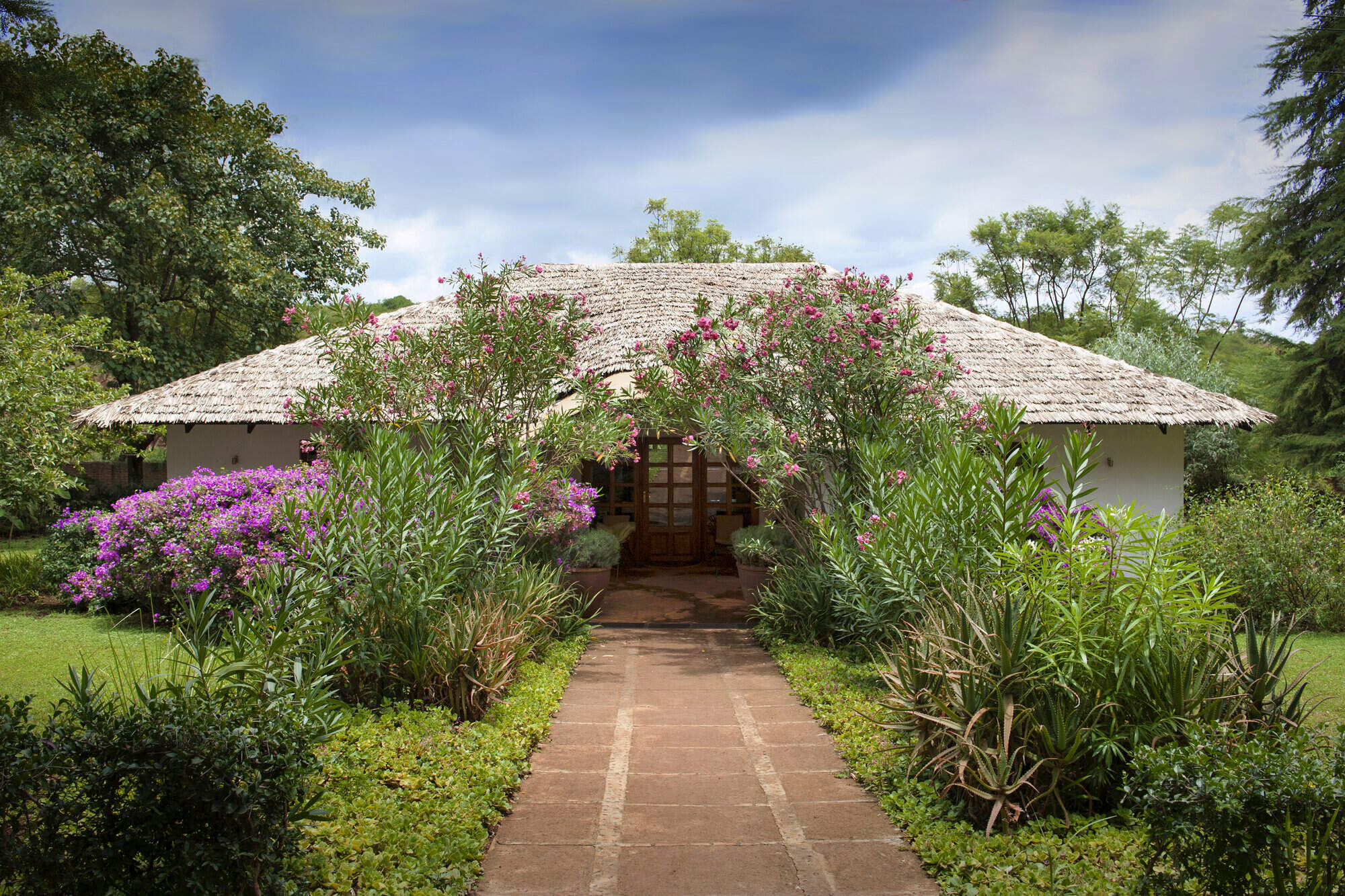
Plantation Lodge
A relaxed base between Ngorongoro and Lake Manyara, Plantation Lodge has lush grounds and offers good value and high standards.
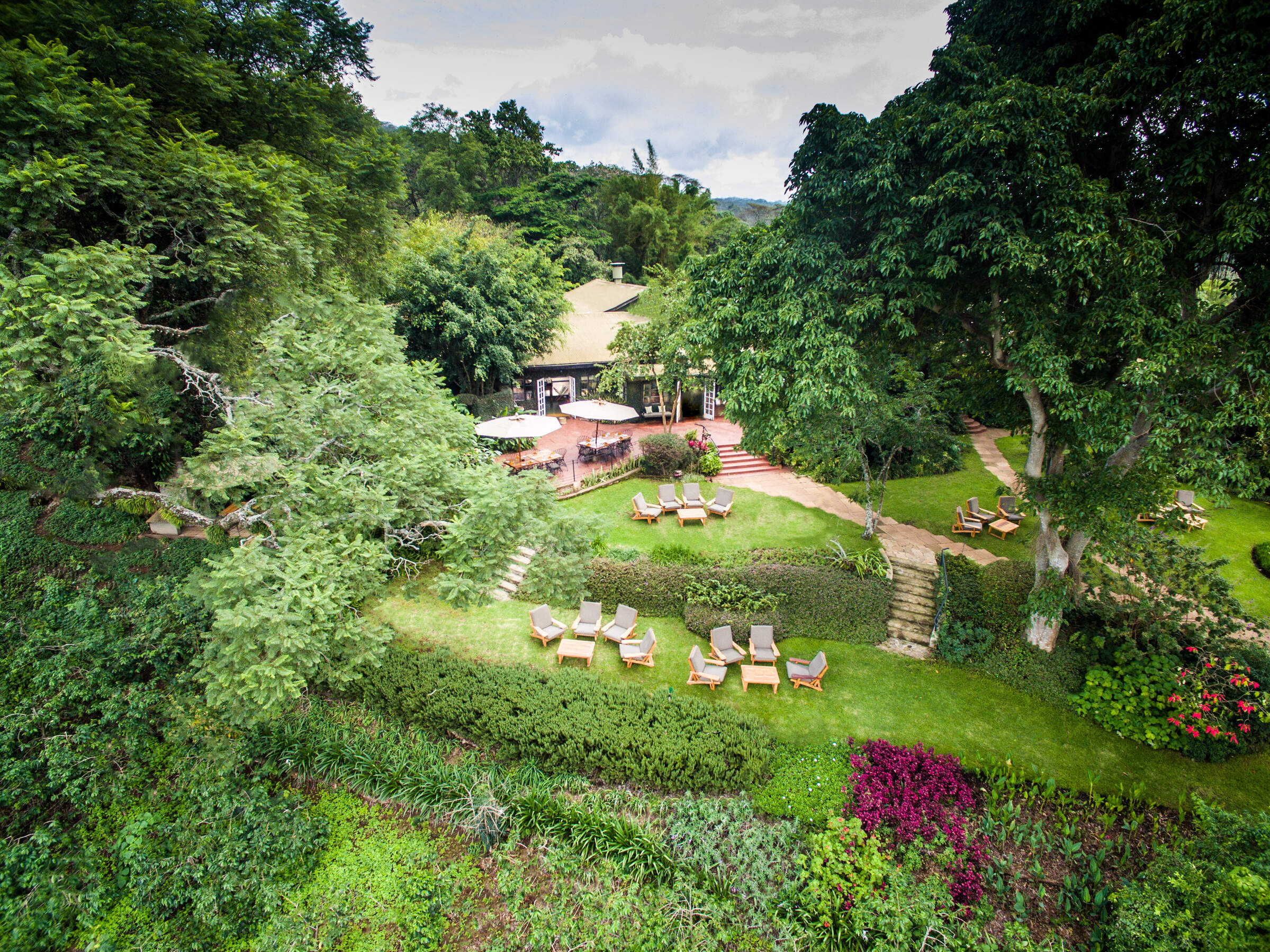
Gibbs Farm
Located not far from the Ngorongoro Conservation Area, Gibb's Farm has comfy rooms, homegrown food and strong community links
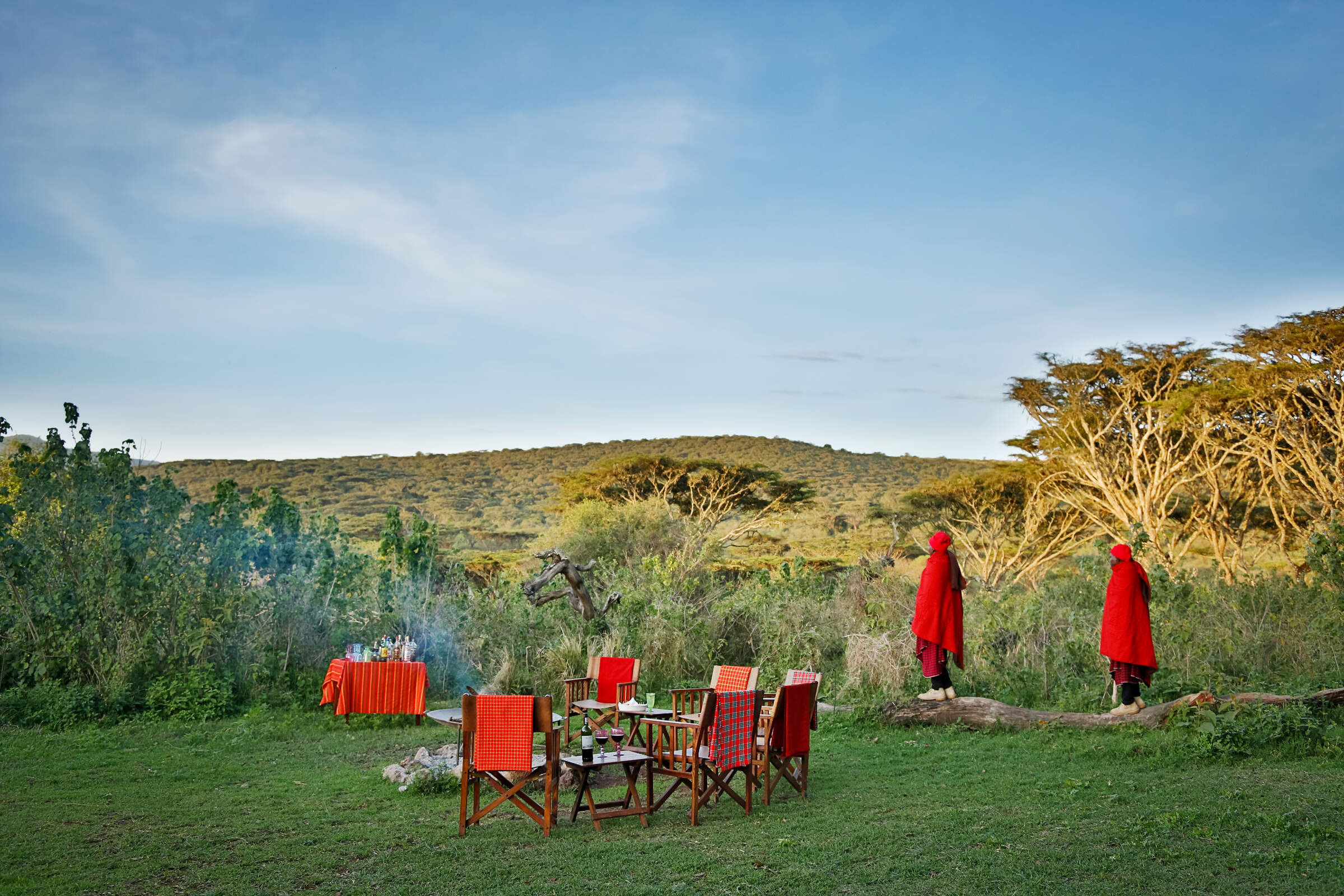
Lemala Ngorongoro
Lemala Ngorongoro is a small, comfortable tented camp on the rim of the Ngorongoro Crater with lovely walking in the vicinity.
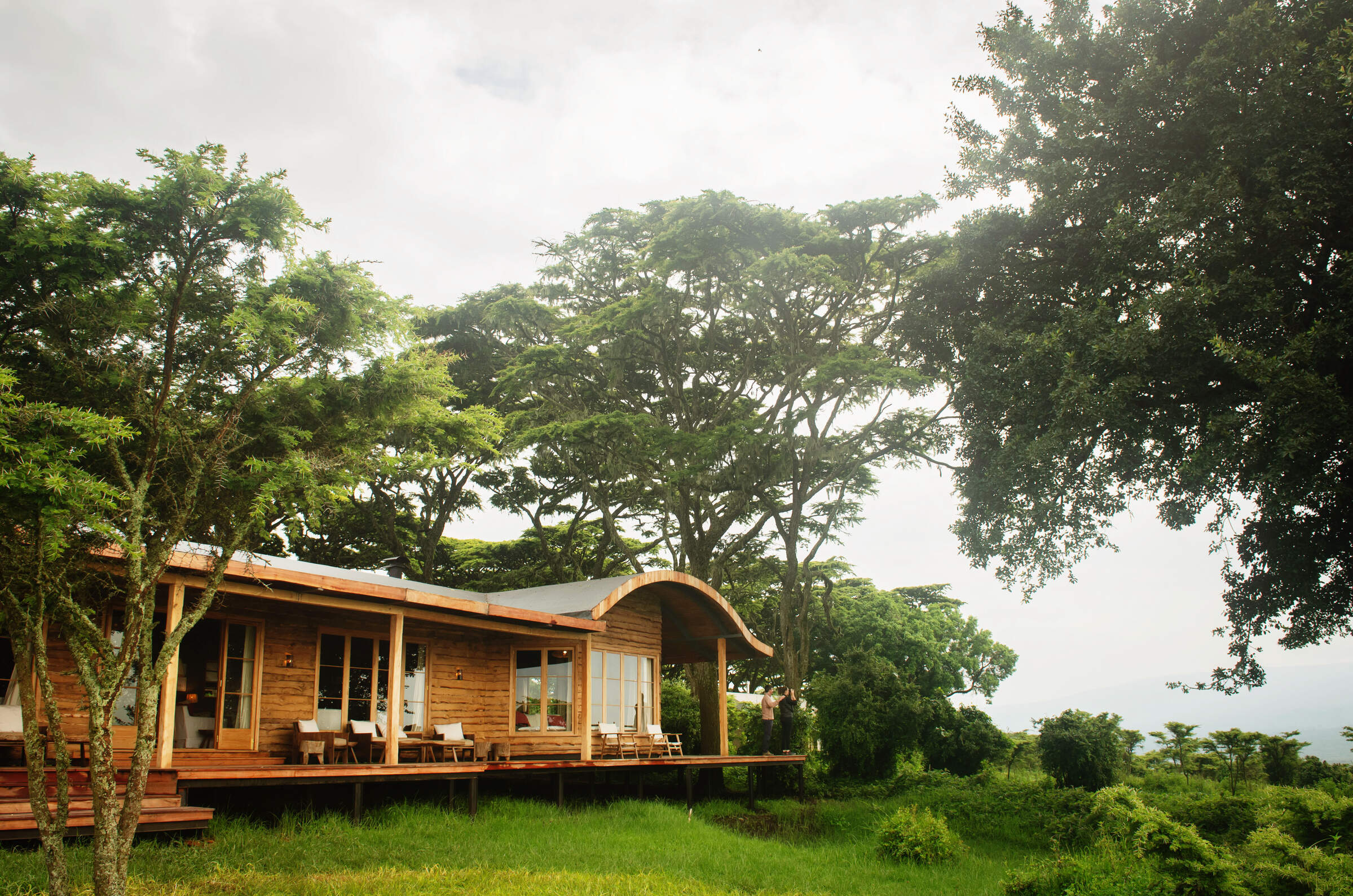
Entamanu Ngorongoro
Opened in 2016, Entamanu Ngorongoro is a small camp high on the Crater rim with views towards the crater and the plains of the Serengeti.
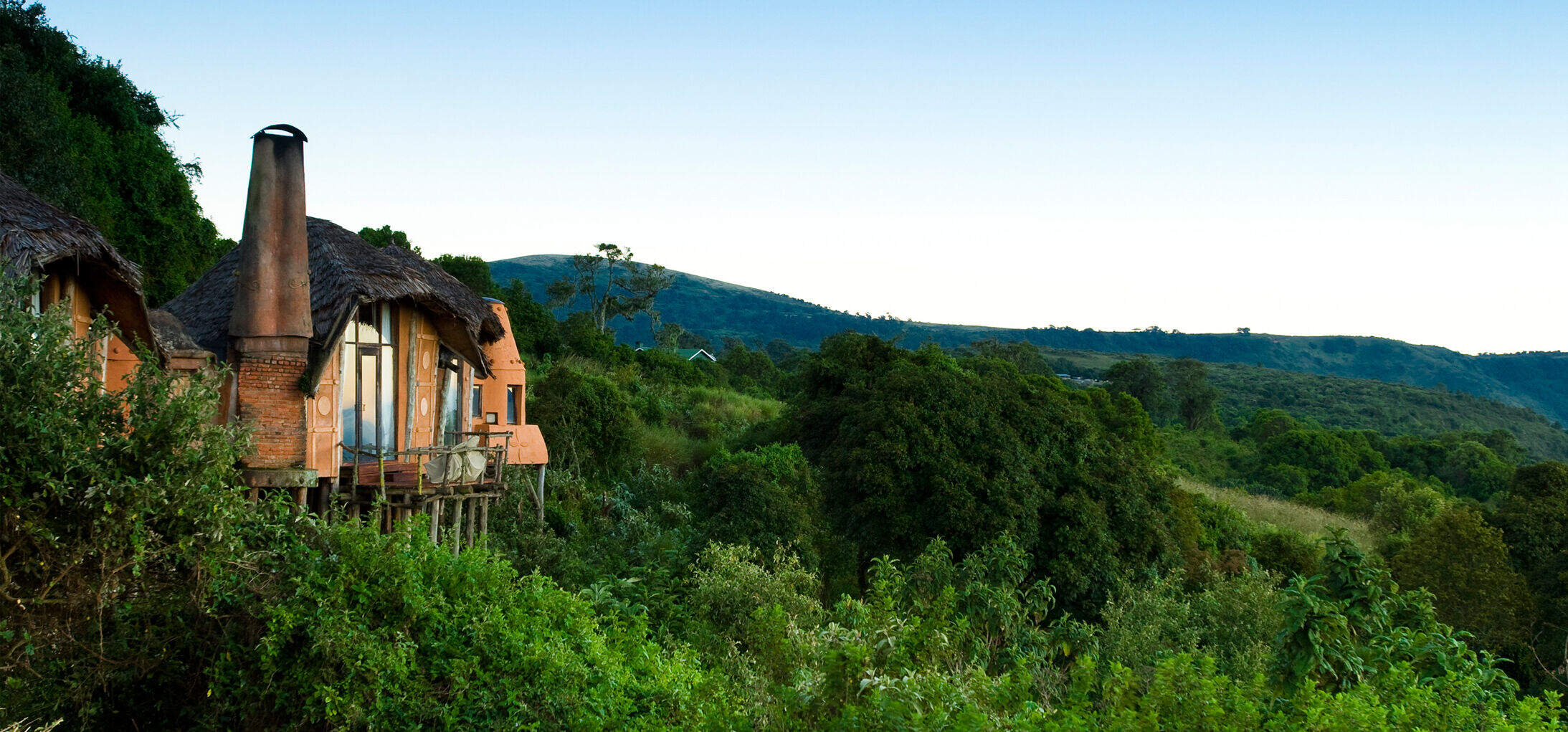
Crater Lodge
The ultra-luxurious Ngorongoro Crater Lodge is perched in a spectacular location on the edge of the Ngorongoro Crater.
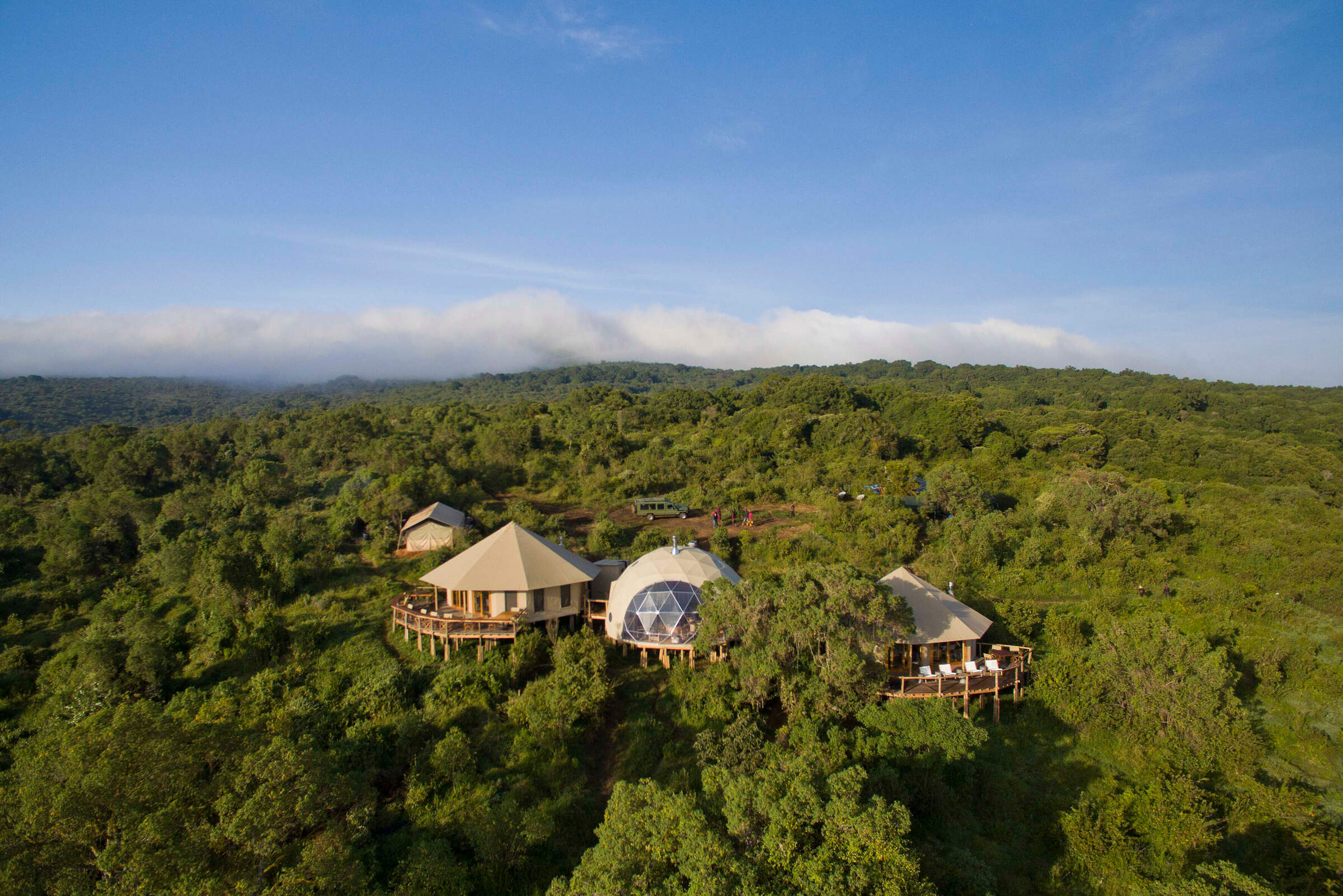
The Highlands
The Highlands is a unique camp near Olmoti Crater, north of Ngorongoro, offering drives, walks and cultural visits from a beautiful remote setting.
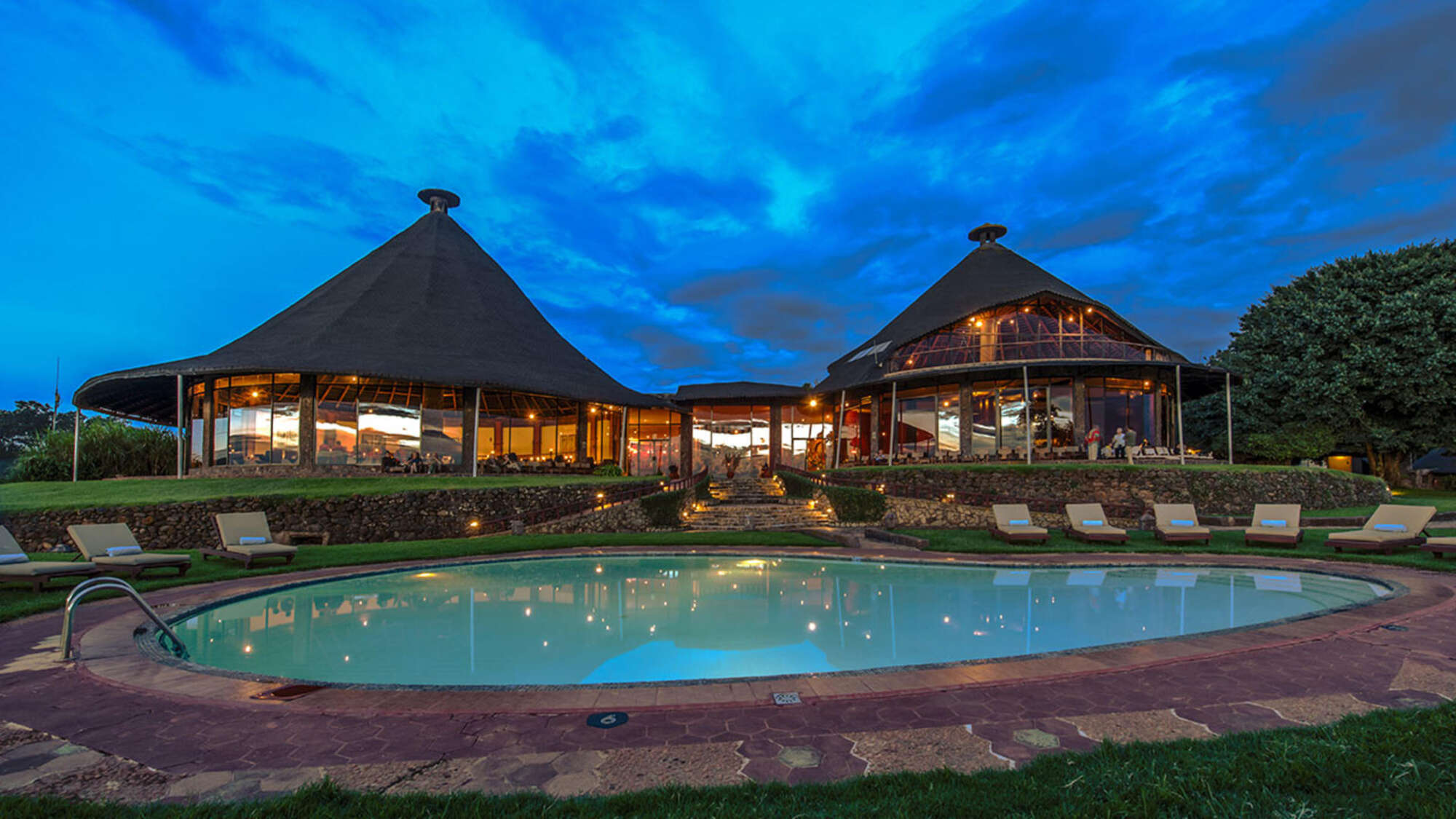
Ngorongoro Sopa Lodge
Situated on the eastern rim of the Ngorongoro Crater, with outstanding views, the Sopa Lodge is a somewhat dated, international-style hotel.
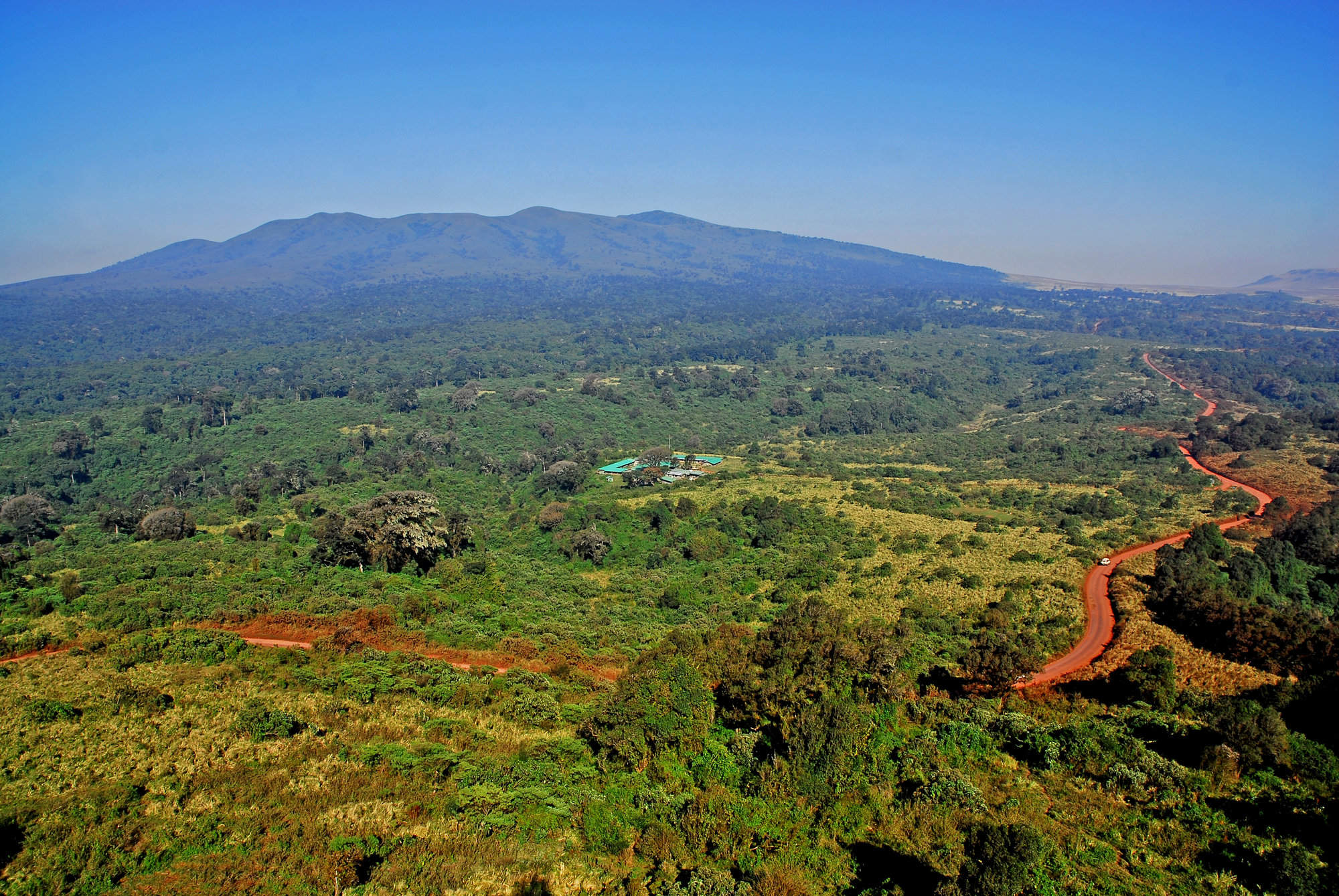
Rhino Lodge
Rhino Lodge is a simple, good-value lodge with a great location near the crater rim, in the Ngorongoro Conservation Area.
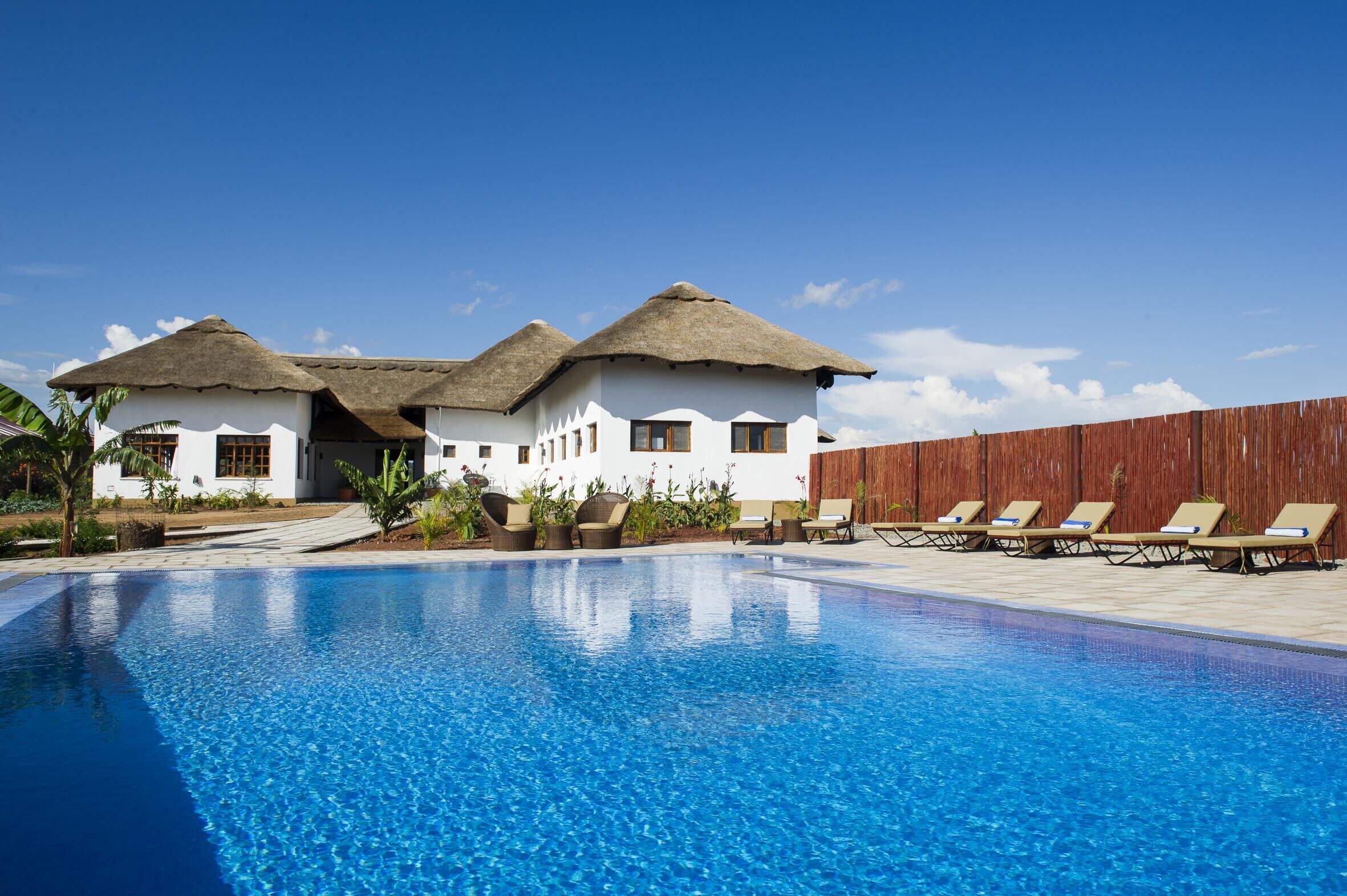
Farmhouse Lodge
Ngorongoro Farmhouse Lodge is set on a 750-acres working farm. Close to the NCA gate, it makes a great base for exploring the Crater.
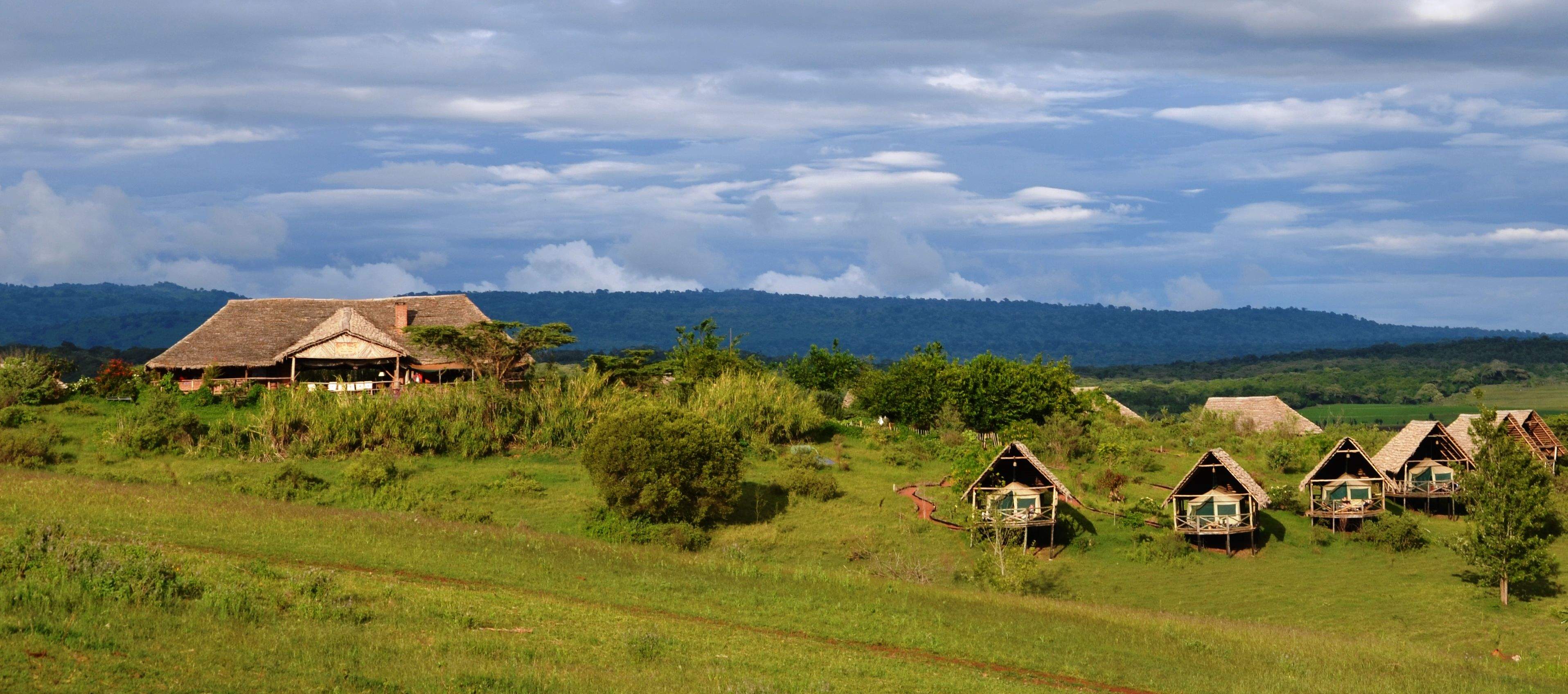
Rhotia Valley Ttd. Lodge
Rhotia Valley is a simple lodge with a strong commitment to the local community, including a children's home, which guests may visit.
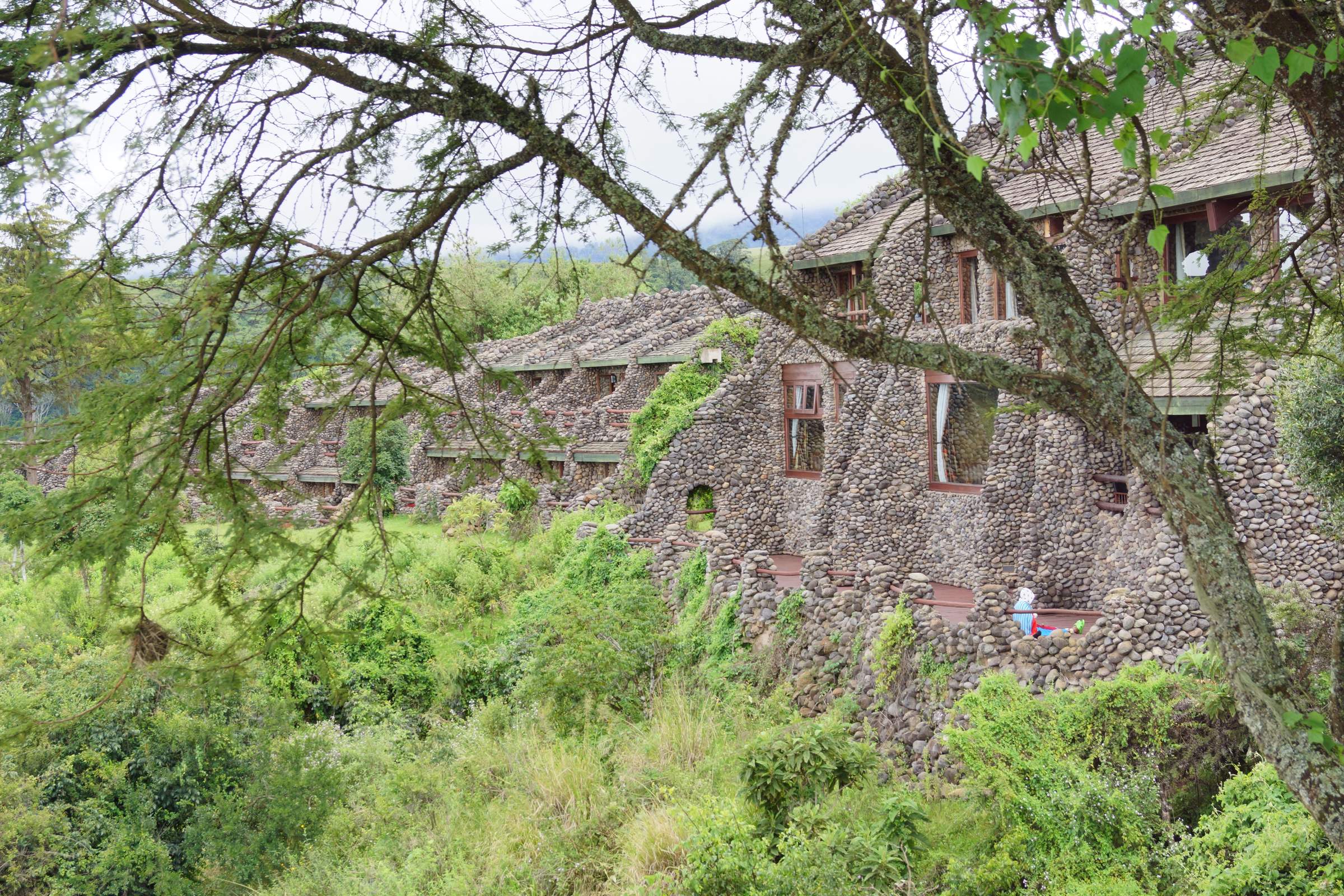
Ngorongoro Serena
The large, hotel-like Ngorongoro Serena Safari Lodge sits on the western rim of Ngorongoro Crater and has stunning views of the caldera.
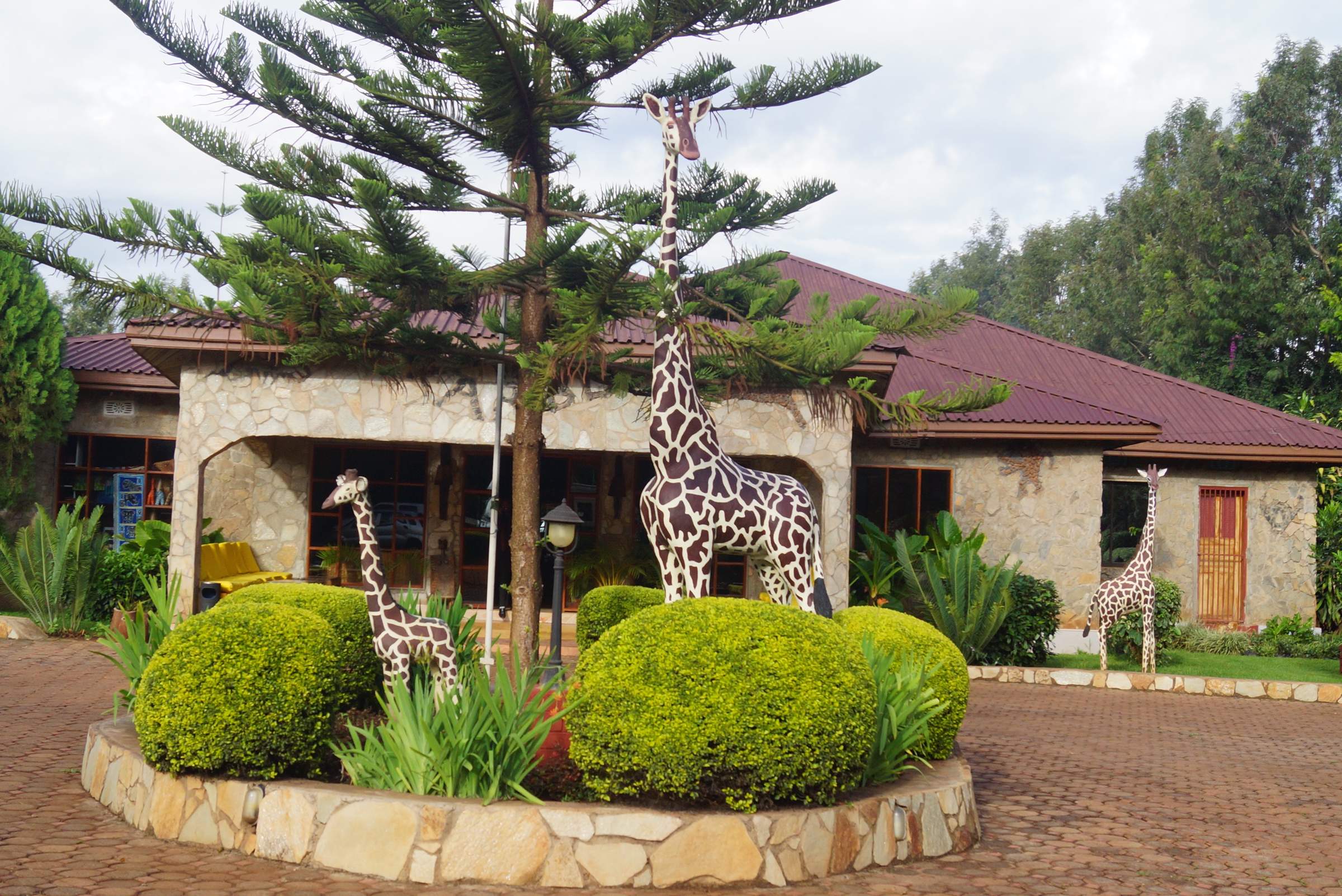
Bougainvillea Lodge
Bougainvillea Safari Lodge provides an economical base from which to visit Lake Manyara or the Ngorongoro Crater.
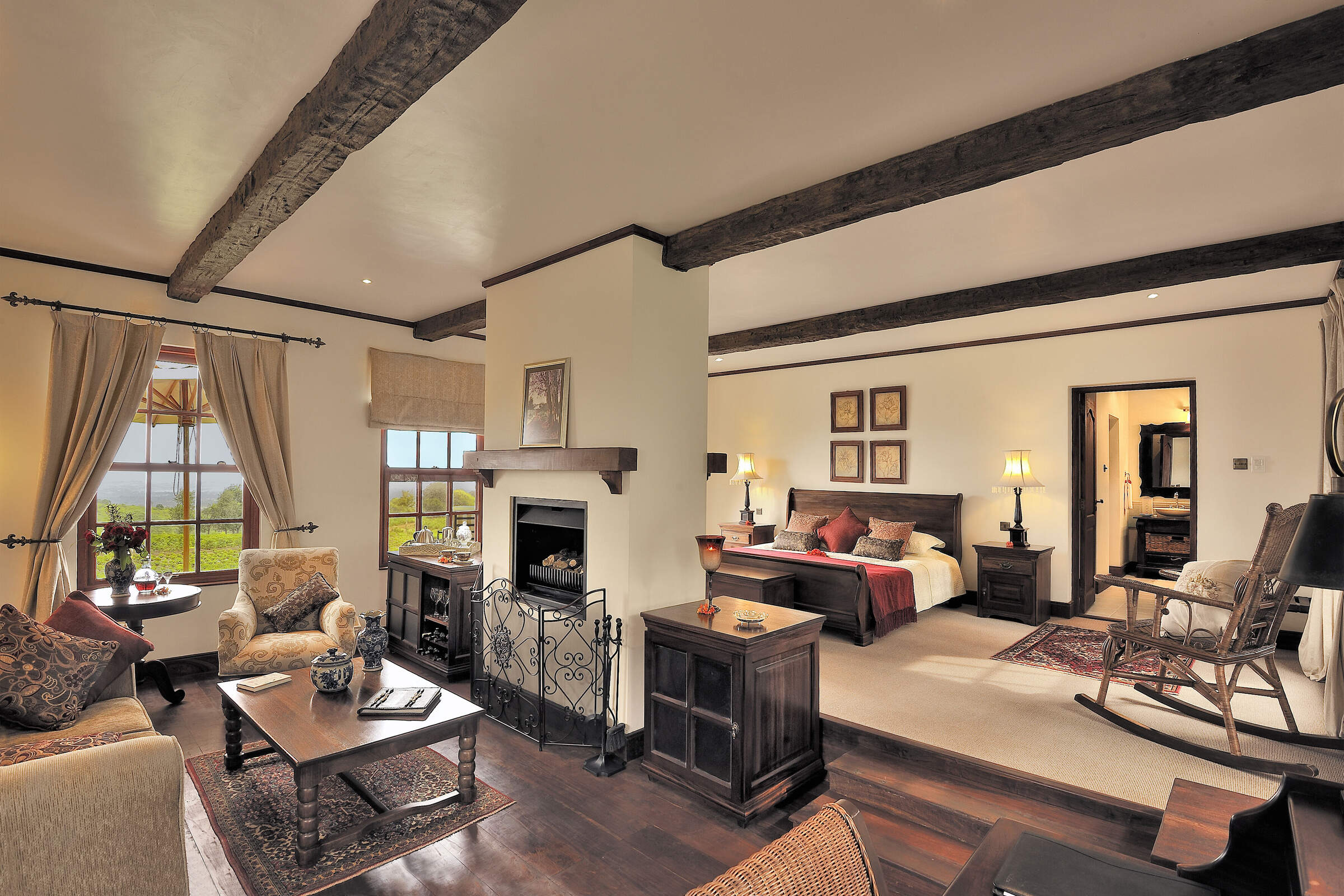
The Manor
The Manor is a smart, family-friendly Cape-Dutch-style lodge, offering high-quality service and food in very comfortable surroundings.
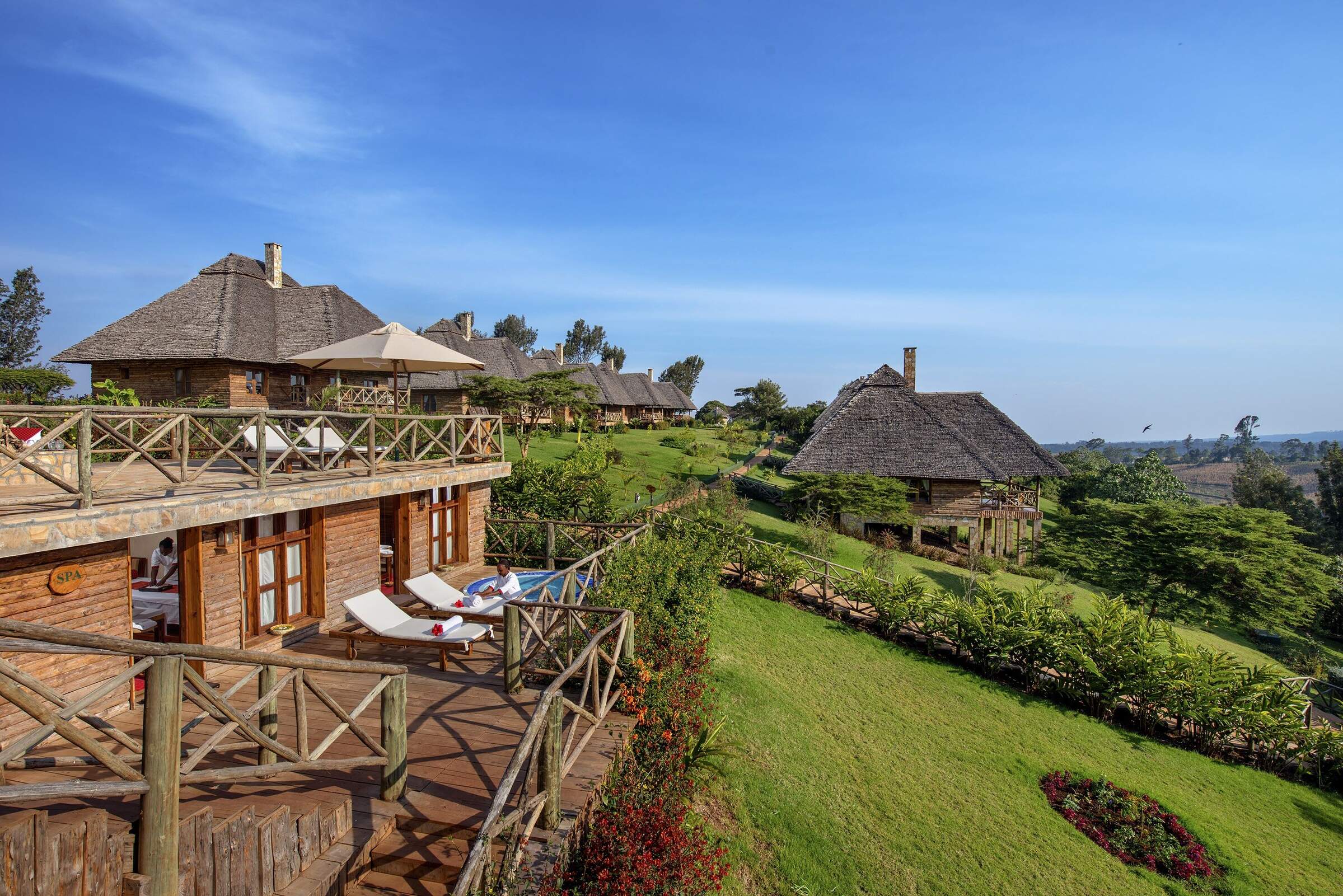
Neptune Ngorongoro
Neptune Ngorongoro Luxury Lodge is a smart hilltop lodge with log-style cottages set close to the Ngorongoro Conservation Area.
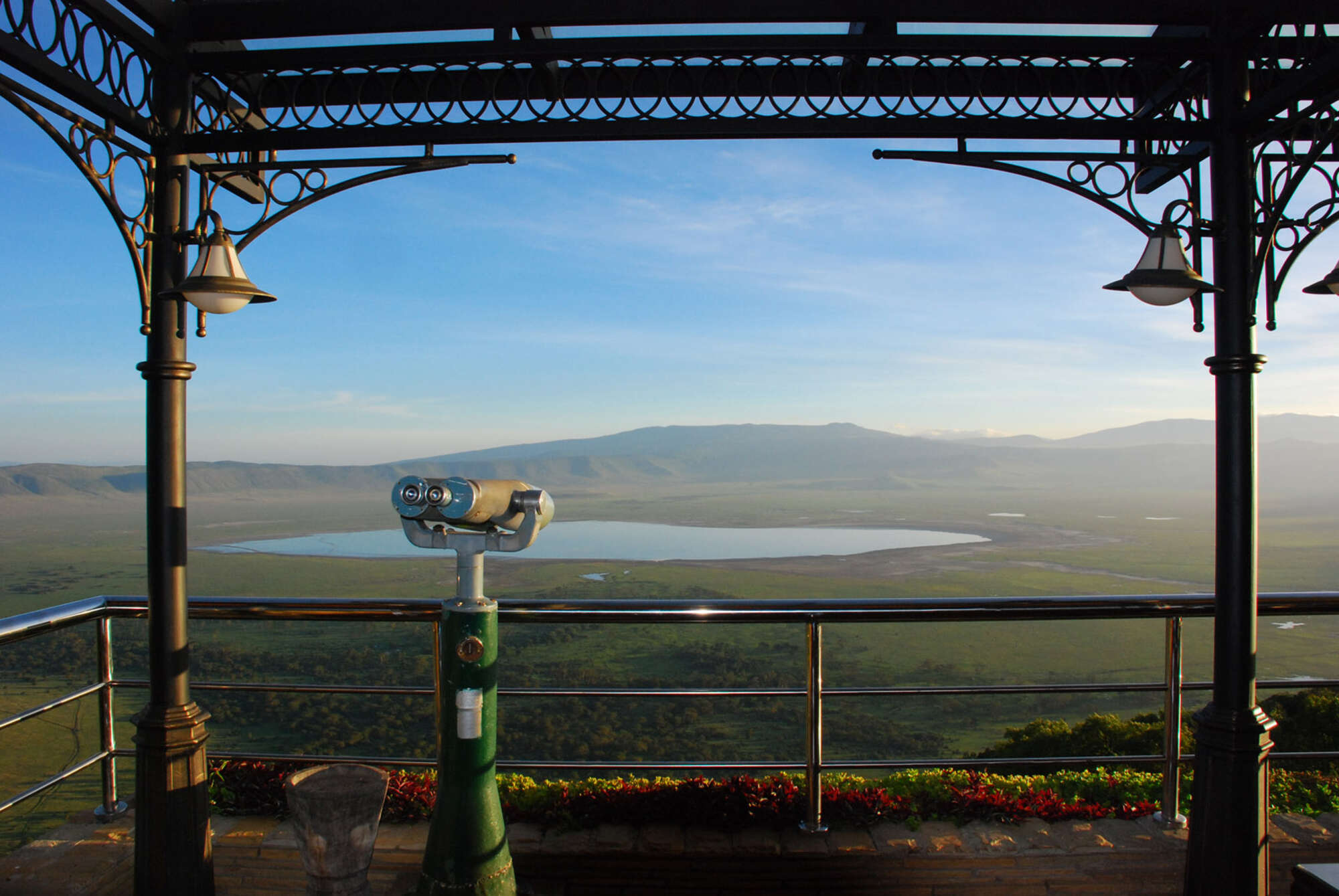
Wildlife Lodge
Stay at the Ngorongoro Wildlife Lodge while on road safari in Northern Tanzania's spectacular Ngorongoro Crater area.
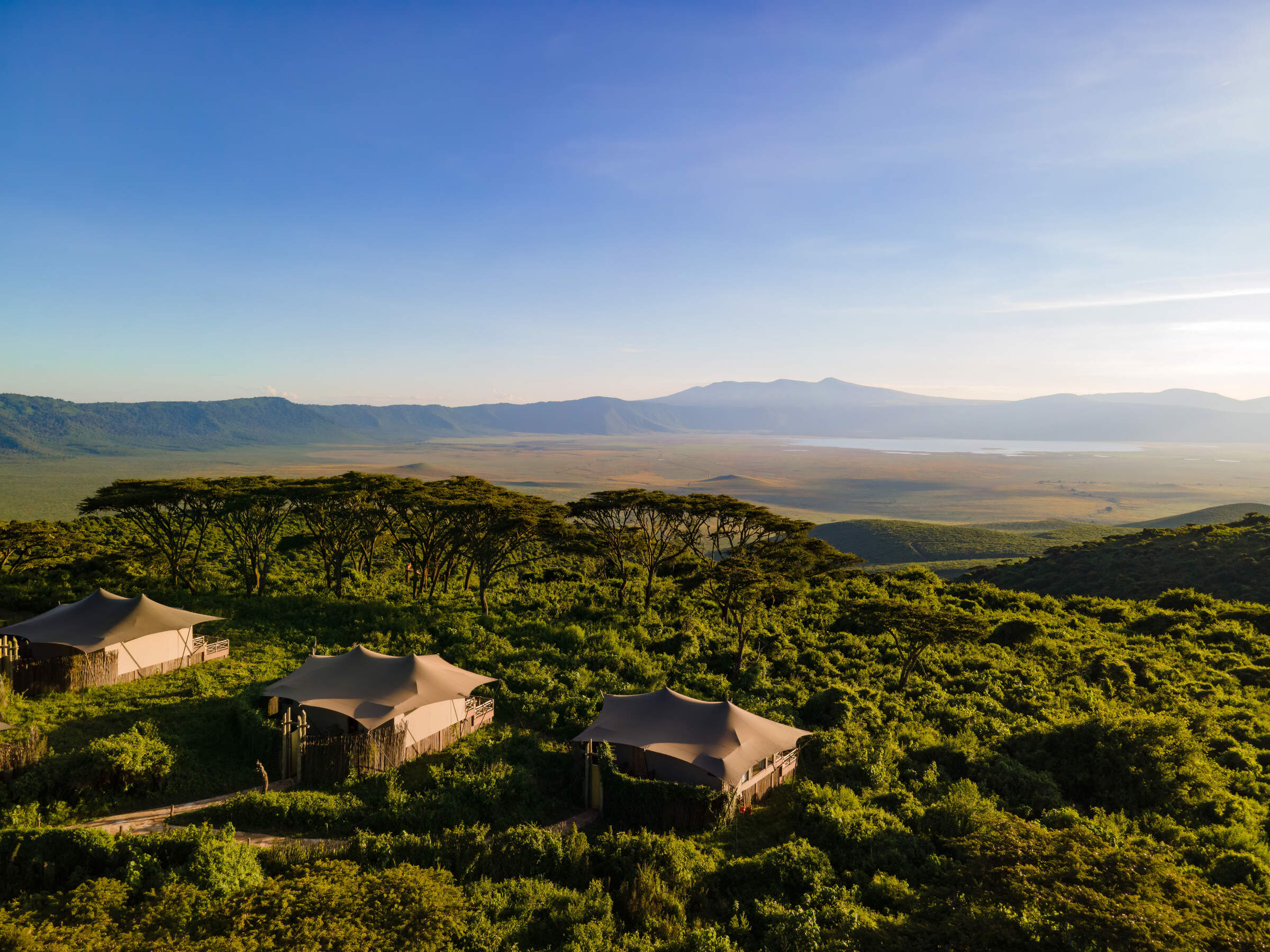
Crater's Edge
Craters Edge is an intimate luxury property on the north-eastern rim of the Ngorongoro Crater.
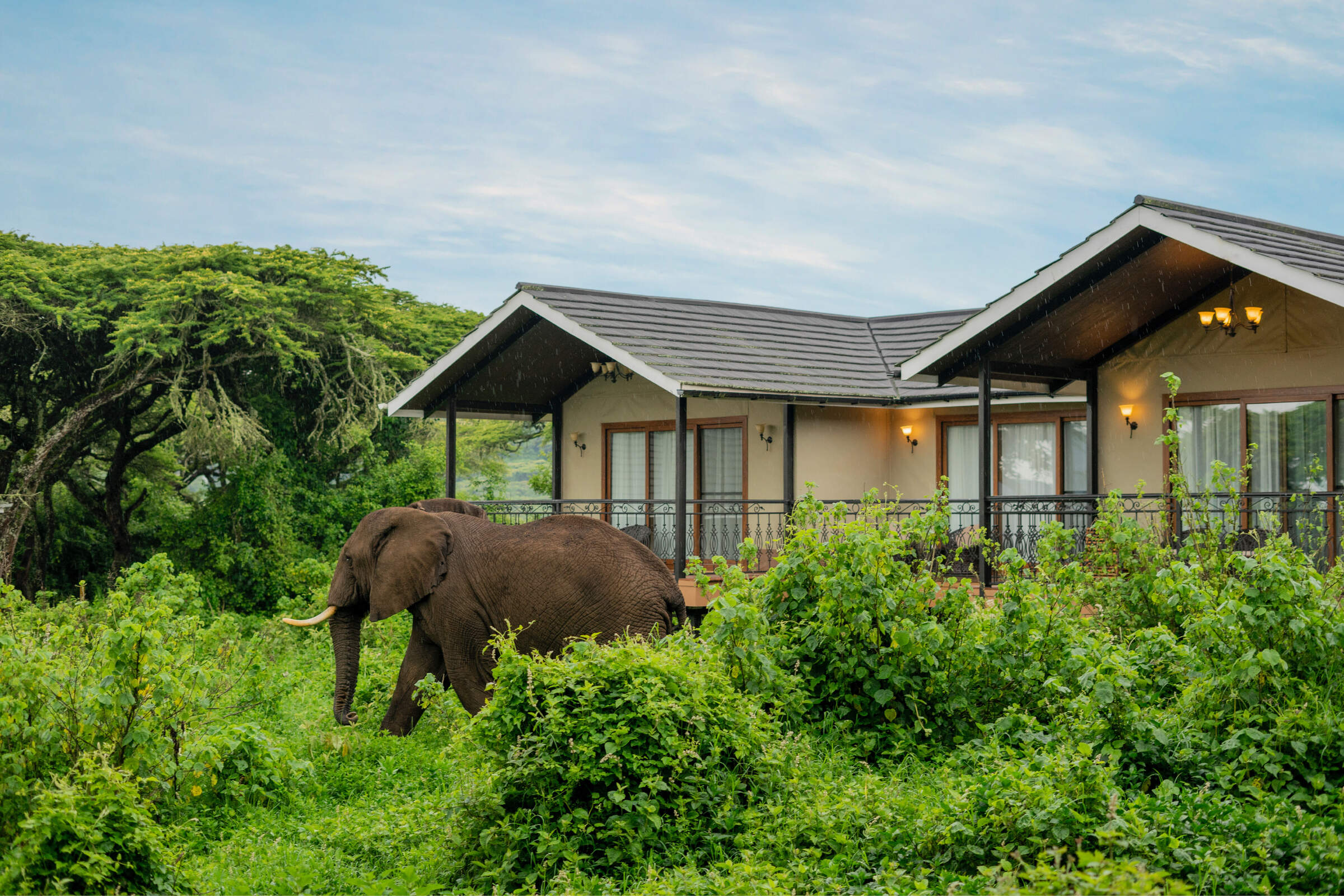
Lion's Paw
Located on the eastern rim of the Ngorongoro Crater, this camp has stunning panoramic views down onto the crater floor. A five minute drive to the nearest descent gate allows for early access into the crater, maximising on avoiding the large crowds
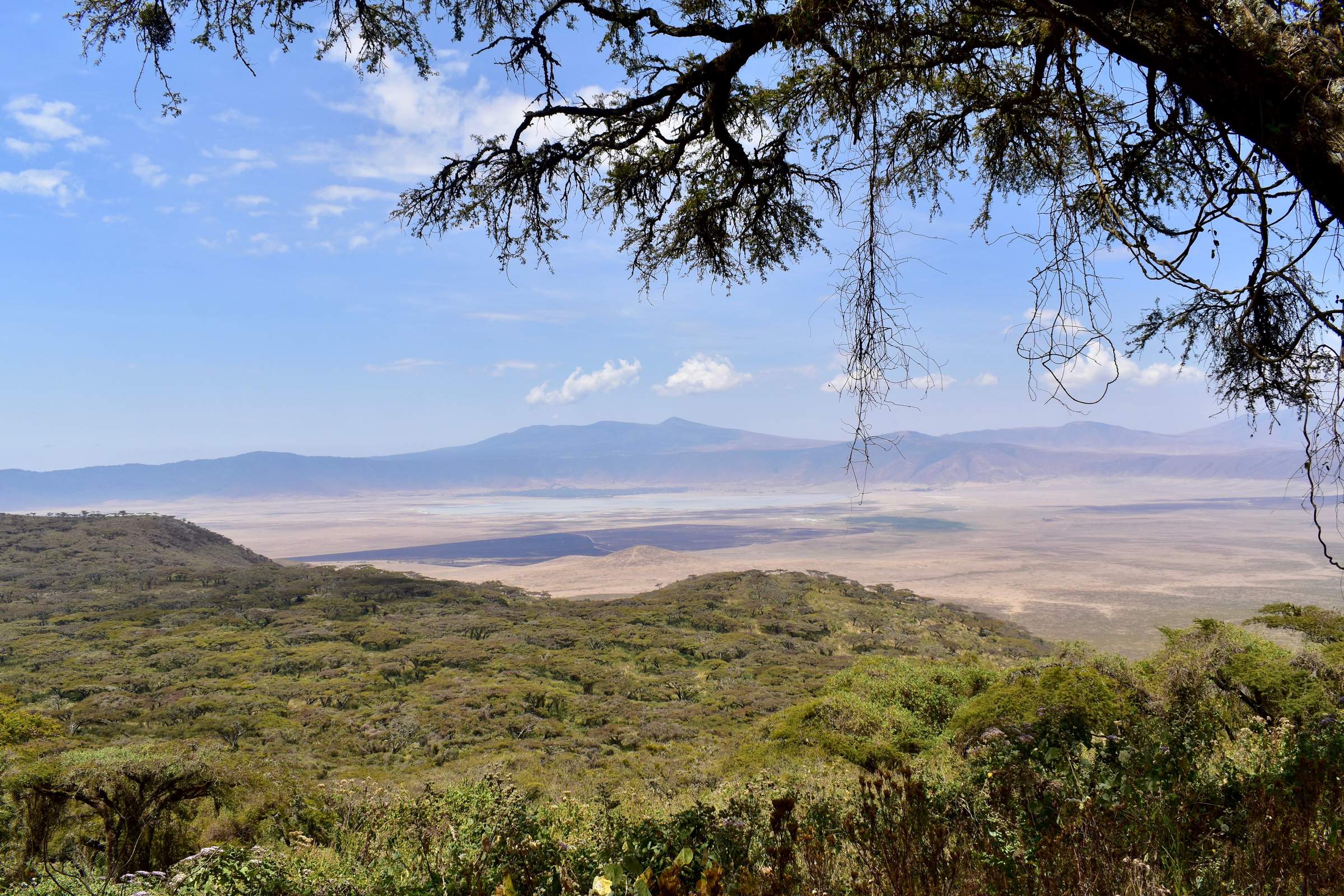
Ngorongoro Fly-Camp
Explore the remote northern rim of the Ngorongoro Crater on a two-day hike and spend the night in this small fly-camp.
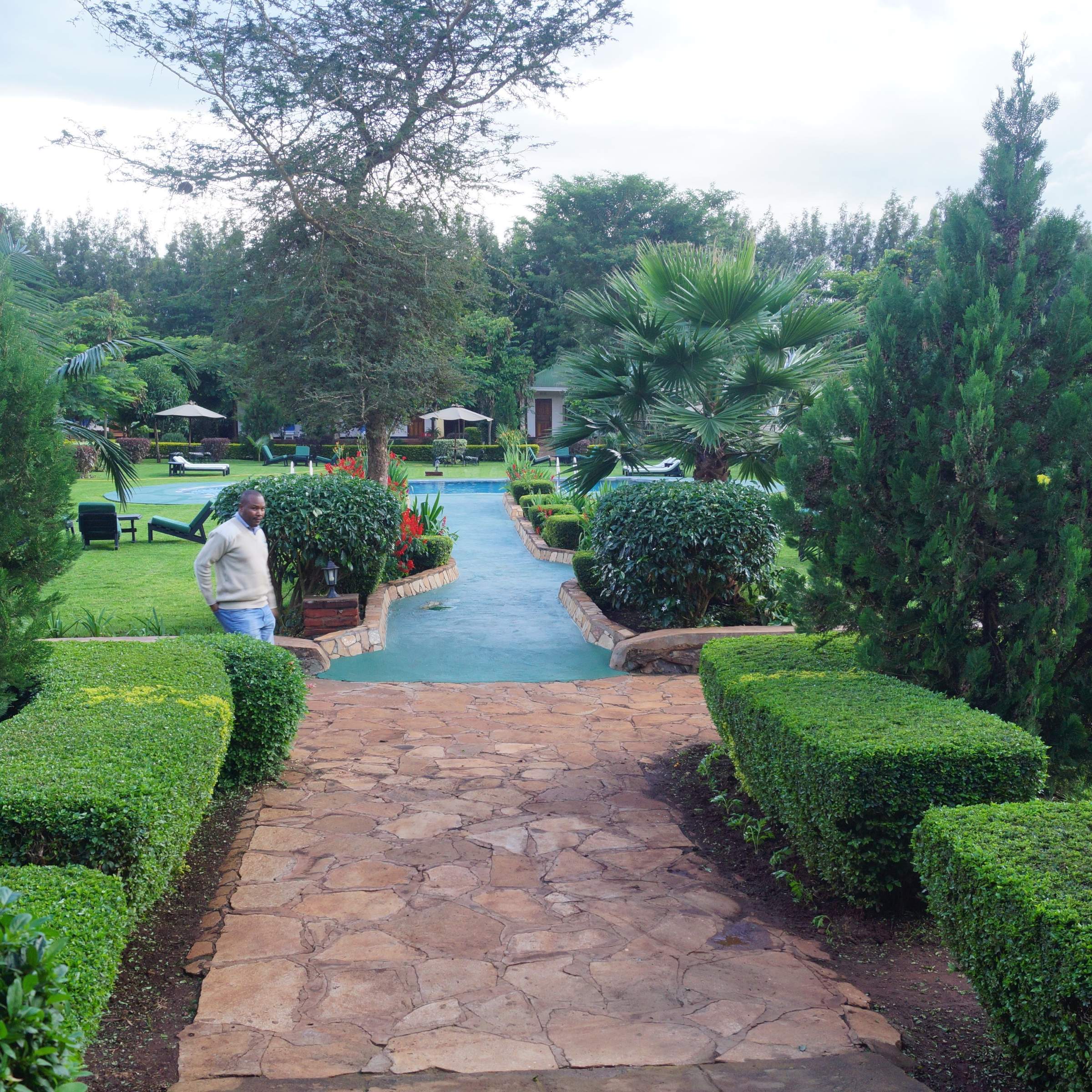
Country Lodge
Country Lodge is conveniently located on the edge of Karatu and provides a comfortable base for exploring Ngorongoro Crater or Lake Manyara.
When to go to Ngorongoro Crater
Our month by month guide: What it's like to visit Sanctuary Ngorongoro Crater Camp in Ngorongoro Crater
Jan
Feb
Mar
Apr
May
Jun
Jul
Aug
Sep
Oct
Nov
Dec
Ngorongoro Crater in January
January marks the start of the short dry season. The Ngorongoro Crater floor is teeming with wildlife, offering excellent game viewing opportunities. The calving season for wildebeest begins in the nearby Ndutu Plains, attracting predators and providing exciting wildlife spectacles. Birdlife is vibrant, with both resident and migratory species present. The Lerai Fever Tree Forest is lush, attracting elephants and various bird species.
While the crater can be busy due to the New Year period, it quietens down later in the month. The Olduvai Gorge archaeological site is less crowded, allowing for a more intimate exploration of human evolution history. January offers good value for visitors, with pleasant weather and diverse wildlife sightings across the conservation area.
- Variable weather: clear, dry, or rainy
- Calving season in Ndutu Plains begins
- Excellent time for birding in the crater
- Great Migration gathers in southern areas
- Busy early month, quieter towards the end
Our view
A good time to visit, with pros & cons
Weather in January
Ngorongoro Crater in February
February in Ngorongoro Conservation Area is characterised by warm, dry weather, making it an ideal time for game drives and hiking. The Ngorongoro Crater remains a wildlife hotspot, with large herds of zebras, wildebeests, and gazelles on the crater floor. The calving season continues in the Ndutu Plains, offering incredible opportunities to witness newborn animals and intense predator activity.
Birdwatching is excellent, especially around Lake Magadi, where flamingos and other water birds congregate. The Empakaai and Olmoti Craters provide serene hiking experiences with stunning views. February is also a great time to visit Maasai villages, as the dry weather makes travel easier. The Olduvai Gorge and Laetoli Footprints sites are less crowded, allowing for a more in-depth exploration of these significant archaeological areas.
- Hot and dry weather in the conservation area
- Peak of wildebeest calving in Ndutu Plains
- Crater and southern areas busy with tourists
- Lush green landscapes throughout the region
- Increased predator activity due to calving
Our view
A very good time to visit
Weather in February
Ngorongoro Crater in March
March sees the beginning of the long rainy season, though exact timing varies yearly. The Ngorongoro Crater remains accessible, with lush vegetation attracting diverse wildlife. As migratory animals start to disperse, game viewing can become more challenging but rewarding. The wildebeest migration may still be visible in parts of the conservation area. Lake Magadi and other water sources become increasingly important for wildlife, offering excellent birdwatching opportunities. The Lerai Fever Tree Forest is particularly beautiful during this time.
March is ideal for visiting the Olduvai Gorge, as the slightly wetter conditions can reveal fossils and artifacts. Cultural experiences at Maasai villages continue to be enriching. Some lodges may start to close for renovations, so it's advisable to check availability in advance.
- Hot with building humidity before rains
- Wildlife viewing varies as rains approach
- Quieter tourist season with lower rates
- Good for birding with migrant species present
- Great Migration begins to move northward
Our view
A good time to visit, with pros & cons
Weather in March
Ngorongoro Crater in April
April is usually the wettest month in Ngorongoro area, with heavy rains transforming the landscape. The Ngorongoro Crater floor becomes a lush paradise, with wildflowers blooming across the grasslands. Wildlife viewing can be challenging due to the dense vegetation, but patient observers can witness unique behaviours. Lake Magadi swells, attracting numerous water birds, including flamingos. The Lerai Fever Tree Forest is at its most verdant, providing shelter for various animals.
April is an excellent time for photography, with dramatic skies and vibrant landscapes. The Olduvai Gorge and other archaeological sites may have limited access due to rain. While some lodges close during this period, those that remain open offer significantly reduced rates, making it an affordable time to visit for budget-conscious travellers willing to brave wetter conditions.
- Heavy rains with impressive thunderstorms
- Some lodges may close due to accessibility
- Lowest rates and very few other tourists
- Lush, green landscapes in the crater
- Not the best time game viewing due to dispersal
Our view
This is not a great time to visit
Weather in April
Ngorongoro Crater in May
As the month of May progresses, there begins a gradual decrease in rainfall, though the landscape remains lush and green. The Ngorongoro Crater floor is teeming with life, as animals take advantage of the abundant vegetation. Birdwatching is exceptional, particularly around Lake Magadi and the Lerai Fever Tree Forest. The Empakaai and Olmoti Craters offer stunning hiking experiences, with waterfalls and streams at their most impressive, though it can be muddy and slippery underfoot. Wildlife viewing improves as the month progresses and vegetation begins to thin.
May is an excellent time to visit the Olduvai Gorge and Laetoli Footprints, as the slightly damp conditions can reveal hidden fossils. Cultural visits to Maasai villages provide insights into how local communities adapt to seasonal changes. With fewer tourists, May offers a more intimate safari experience and the opportunity to enjoy Ngorongoro's beauty in relative solitude.
- Heavy rains continue with dramatic skies
- Quiet month, ideal for avoiding crowds
- Crater floor lush and green with long grass
- Wildlife more dispersed, fewer sightings
- Lower prices make safaris more affordable
Our view
This is not a great time to visit
Weather in May
Ngorongoro Crater in June
June marks the beginning of the dry season in Ngorongoro, with clearer skies and cooling temperatures. The Ngorongoro Crater becomes a wildlife haven as animals concentrate around remaining water sources. Game drives in the crater offer excellent opportunities to spot the Big Five. The Ndutu Plains start to dry out, concentrating wildlife and making them easier to spot.
Birdwatching remains rewarding, especially around Lake Magadi. The Lerai Fever Tree Forest provides a beautiful backdrop for wildlife photography. June is an ideal time for hiking in the Empakaai and Olmoti Craters, with comfortable temperatures and clearer trails. The Olduvai Gorge and other archaeological sites are easily accessible. As the shoulder tourist season begins, lodges reopen and offer a wide range of accommodation options.
- Variable weather: clear, dry, or some rain
- Wildlife starts to concentrate near water
- Parks still green but grass getting shorter
- Moderate visitor numbers in the crater
- Good value with shoulder season prices
Our view
A good time to visit, with pros & cons
Weather in June
Ngorongoro Crater in July
July is a prime month for visiting Ngorongoro, with dry weather and excellent wildlife viewing. The Ngorongoro Crater floor is bustling with activity as large herds of wildebeest, zebras, and gazelles graze on the short grass. Predator sightings, including lions and hyenas, are frequent. Lake Magadi attracts numerous flamingos and other water birds. The Lerai Fever Tree Forest provides shade for elephants and various bird species.
July is perfect for hiking adventures to the Empakaai and Olmoti Craters, offering breathtaking views. The Olduvai Gorge and Laetoli Footprints sites are easily accessible, providing fascinating insights into human evolution. Cultural visits to Maasai villages are particularly rewarding. However, the excellent conditions mean the area can get crowded, especially in the crater, so early bookings are essential.
- Dry and warm days, chilly mornings/evenings
- Excellent wildlife viewing in the crater
- Peak tourist season with high visitor numbers
- Higher prices due to prime conditions
- Book well in advance for crater lodges
Our view
Fantastic: the very best time to visit
Weather in July
Ngorongoro Crater in August
August in Ngorongoro offers superb safari conditions with clear skies and comfortable temperatures. The Ngorongoro Crater remains the focal point, with dense wildlife populations and excellent visibility. Predator sightings are frequent, with lions, leopards, and cheetahs often spotted. Lake Magadi is a hive of activity, with large flocks of flamingos creating a pink spectacle. The Lerai Fever Tree Forest provides a picturesque setting for wildlife photography.
August is ideal for exploring the Empakaai and Olmoti Craters on foot, with stunning vistas and diverse flora. The Olduvai Gorge and other archaeological sites offer fascinating excursions. However, August is peak season, so the crater can be crowded, and advance bookings are crucial for accommodations and activities.
- Dry weather continues, chilly mornings
- Superb wildlife viewing opportunities
- Very busy, especially in the crater area
- Advance booking essential for accommodations
- Consider exploring less crowded areas
Our view
Fantastic: the very best time to visit
Weather in August
Ngorongoro Crater in September
September in Ngorongoro offers excellent safari conditions as the dry season continues. The Ngorongoro Crater floor teems with wildlife, concentrated around remaining water sources. This month provides some of the best opportunities to spot the Big Five in close proximity. Lake Magadi attracts numerous flamingos and other water birds, creating spectacular scenes. The Lerai Fever Tree Forest is a haven for elephants and various bird species.
September is ideal for hiking adventures to the Empakaai and Olmoti Craters, with clear skies offering breathtaking views. The Olduvai Gorge and Laetoli Footprints sites are easily accessible, providing fascinating insights into human evolution. Cultural visits to Maasai villages remain rewarding. While still part of the high season, September tends to see slightly fewer visitors than July and August, especially as the month progresses, offering a more relaxed safari experience.
- Fantastic wildlife viewing continues
- Parks slightly quieter than peak months
- Crater floor becomes drier, less vegetation
- Cool mornings and evenings, warm days
- Prices remain high due to good conditions
Our view
Fantastic: the very best time to visit
Weather in September
Ngorongoro Crater in October
October in Ngorongoro is nearing the end of the dry season, providing excellent wildlife viewing opportunities. The Ngorongoro Crater floor is teeming with animals concentrated around diminishing water sources, offering frequent sightings of lions, elephants, and rhinos. Lake Magadi becomes a crucial water source, attracting diverse birdlife. The Lerai Fever Tree Forest provides essential shade for wildlife.
October is ideal for hiking in the Empakaai and Olmoti Craters, with clear skies offering stunning views. The Olduvai Gorge and other archaeological sites are easily accessible. With fewer tourists than peak months, October offers a balance of excellent wildlife viewing and more moderate visitor numbers.
- Mostly dry with chance of occasional storms
- Excellent game viewing in drier landscape
- Lower visitor numbers than earlier months
- Very good time to visit the crater
- Consider hot air balloon safaris for views
Our view
A very good time to visit
Weather in October
Ngorongoro Crater in November
November in Ngorongoro typically sees the start of the short rains, bringing new life to the area. The Ngorongoro Crater floor begins to green, attracting diverse wildlife. Game viewing remains good, with animals still concentrated around water sources. Lake Magadi and other water bodies start to fill, attracting migratory birds. The Lerai Fever Tree Forest becomes lusher, providing shelter for various species.
November offers unique photographic opportunities with dramatic skies and rejuvenated landscapes. Cultural experiences at Maasai villages provide insights into seasonal adaptations. November can offer great value for money, with the chance to experience both dry and wet season conditions.
- Variable weather: clear, dry, or some rain
- Parks quieter, prices lower than peak season
- Good wildlife sightings as short rains begin
- Early migrants arrive in the crater area
Our view
A good time to visit, with pros & cons
Weather in November
Ngorongoro Crater in December
December in Ngorongoro brings a mix of short rains and dry periods, creating a dynamic environment. The Ngorongoro Crater floor is lush and green, attracting diverse wildlife. Game viewing is excellent, with good chances of spotting the Big Five. Lake Magadi fills further, hosting numerous flamingos and water birds. The Lerai Fever Tree Forest is vibrant with new growth.
December marks the beginning of the wildebeest arriving into the nearby Ndutu Plains, attracting predators. Birdwatching is particularly rewarding with both resident and migratory species present. The Olduvai Gorge and other archaeological sites offer fascinating excursions between rain showers. While the festive season brings more visitors, early December can offer good value. Advance booking is essential for the holiday period.
- Variable weather with occasional rain
- Good game viewing in the crater
- Quiet early month, very busy end of month
- Prices rise sharply for holiday period
- Great Migration starts returning to the south
Our view
A good time to visit, with pros & cons
Weather in December

Looking for inspiration on where to travel next?
Visit our trip chooser to explore your options and find inspiration for your perfect African adventure
Inspire me